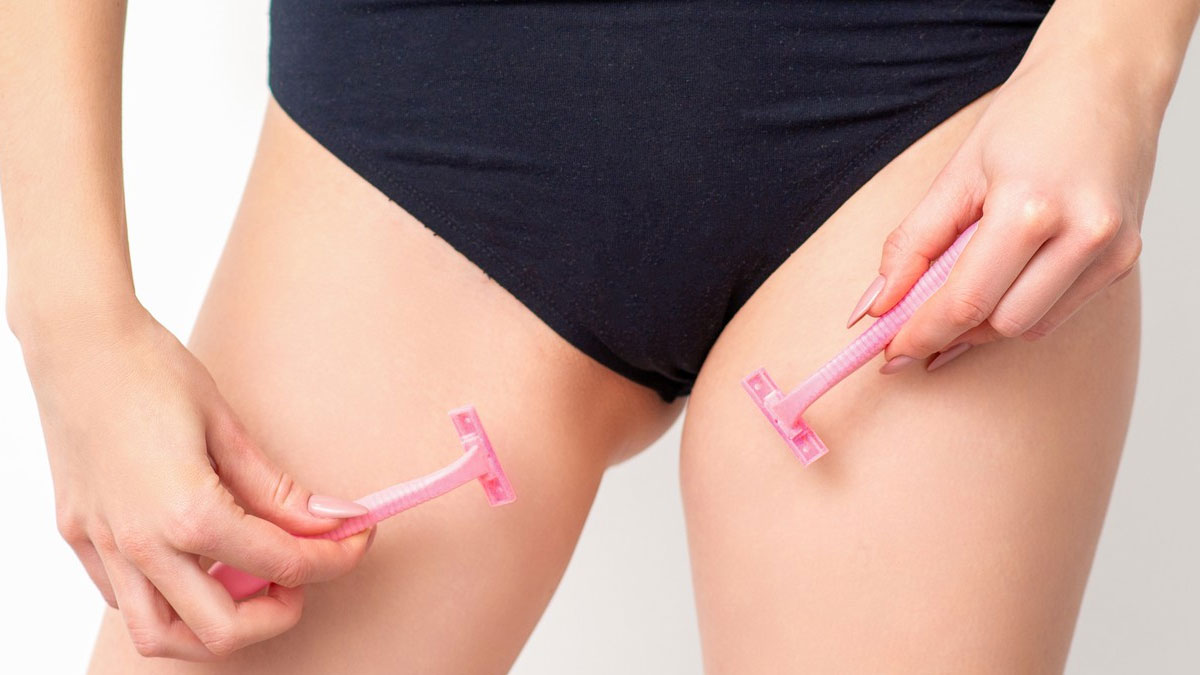
Shaving or grooming the pubic area is a common practice for many, but it can also come with a number of health hazards if not done properly. It is important to be aware of these potential hazards and take the required steps to minimise the risks. In this article, we will discuss some of the most common health hazards associated with shaving the pubic area.
Health Hazards Of Shaving Pubic Area
1. Razor burn
Razor burn is a common side effect of shaving the pubic area. This can occur when the skin gets irritated by the razor, leading to redness, itching, and discomfort. Razor burn is especially common in sensitive areas like the pubic area, where the skin is more delicate.
2. Ingrown hair
Ingrown hair occurs when hair follicles become blocked and the hair grows back into the skin instead of up and out. This can lead to red bumps and infections, which can be uncomfortable and unsightly.
Also read: Common Causes Of Miscarriage & How To Reduce Its Risk
3. Folliculitis
Folliculitis is an infection of the hair follicles that can occur when bacteria or yeast enter the skin through tiny cuts caused by shaving. Folliculitis can lead to red, painful pimples or boils, and it can be difficult to treat if it becomes severe.

4. Cuts and nicks
Shaving the pubic area can be challenging due to the contours and curves of the skin. It is easy to miss spots or cut yourself, which can be painful and increase your risk of infection.
5. Increased risk of STDs
Shaving or grooming the pubic area can cause tiny cuts and abrasions in the skin, which can increase your risk of contracting sexually transmitted diseases (STDs) such as HIV and herpes.
Also read: Common Causes Of Miscarriage & How To Reduce Its Risk
6. Irritation
Shaving the pubic area can also cause skin irritation and redness, especially if you use products like shaving creams or lotions that contain fragrances or other irritants.
Shaving the pubic area can come with a number of health hazards, including razor burn, ingrown hairs, folliculitis, cuts and nicks, increased risk of STDs, and irritation. To minimise these risks, it is important to take proper precautions, such as using a sharp, clean razor, avoiding shaving against the grain, and avoiding shaving too often. If you experience any adverse reactions or symptoms, it is important to seek medical attention. Additionally, it is always a good idea to talk to your doctor about the best grooming practices for your individual needs.
How we keep this article up to date:
We work with experts and keep a close eye on the latest in health and wellness. Whenever there is a new research or helpful information, we update our articles with accurate and useful advice.
Current Version